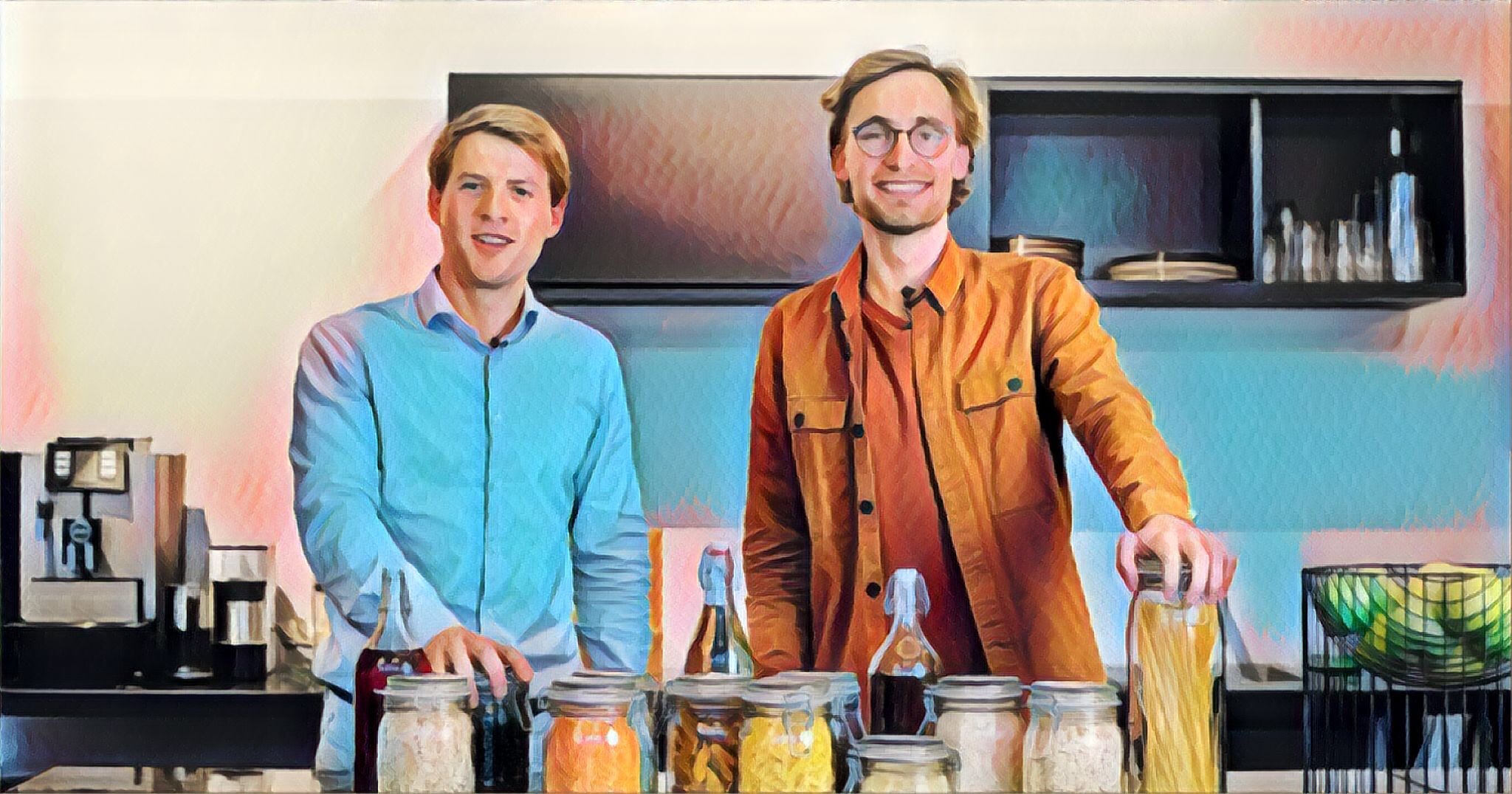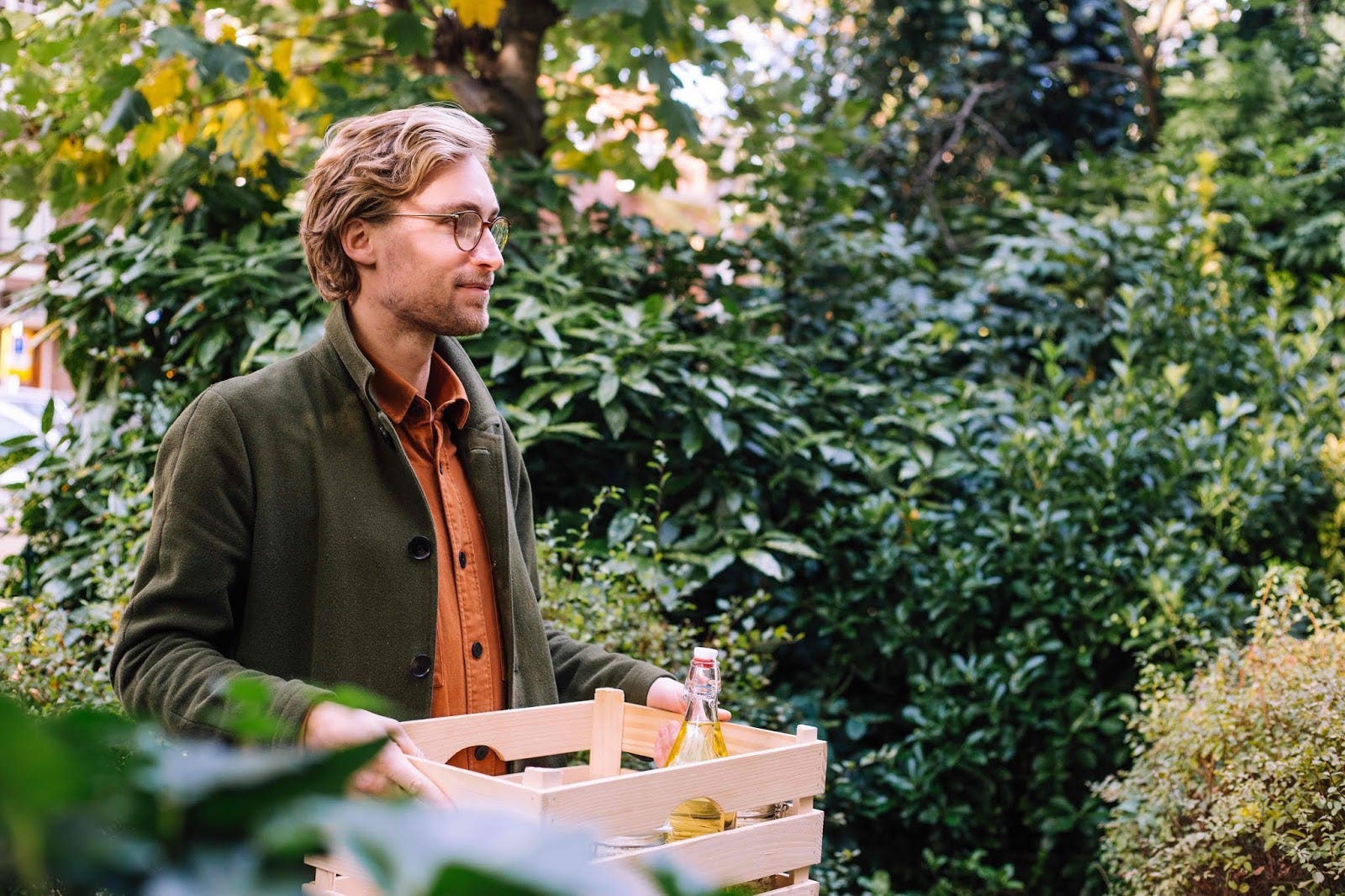Put all your effort into finding people that compliment yourself, and want to do things out of the ordinary. That is the very first step to start a successful company.

One of the very first things Jouri said was that his fast-growing startup, Pieter Pot, has over 20,000 people on their waiting list ready to be served. For a company established just a year ago, it is an incredible achievement. But that is only the starter, let’s get into the main.
Afterward, Jouri explained the whole spectrum of his entrepreneurial journey, from his very first company to dropping out of university to pursue entrepreneurship full time, and until he lost his drive and began brainstorming his newest venture.
Jouri reminds me of Richard Branson (well, I haven’t met Richard, but still), and it is clear that Jouri embodies all the characteristics of the risk-taking entrepreneur who persist against all the odds and ultimately succeeds.
But that is only one part of the story.
At Venture Insider, we strive to undress the ups-and-down, the late nights, early morning, the failures and the victories.
In a few words; we want to share the real stories.
This interview has been edited and condensed for clarity. Everything in Italic symbolizes the voice of the writer, aka, us at Venture Insider.
...
How was your journey from being a student until becoming an entrepreneur?
It all began at TU Delft, a technical university located in the city of Delft, in the Netherlands. But, you won’t guess what I studied even if you’d try a hundred times. Interestingly, my gut-feeling brought me to study architecture.
The architecture department is not the place where you find the tech-people who want to change the world. However, studying architecture provided me with a different perspective. First, it provided me with valuable lessons on how to persuade clients with the best (visual) presentations. Second, it provided me with insights around customer perception and what makes design work for clients.
Anyway, at one point during my master's, I realized I wanted to do something different. I knew two guys that were working on a project, and with a bit of luck, we joined the YesDelft incubator and founded shake-on (this is the short version, of course). Shake-on is a bracelet that will automatically exchange personal information when shaking hands. The idea worked, and we raised money and facilitated a million handshakes.
After countless obstacles, we managed to create a product that had clients both nationally and internationally, but something was missing. Like most millennials, I wanted to make an impact, but I felt stuck. I was not working on something that will get me closer to my bold goal. So after four years, I realized I wanted to start a company with a suitable and social impact.
I went back to school (fun fact: I dropped out of my master's degree in architecture to pursue my entrepreneurial endeavors). But this time, I signed up for a master's in product design. At that time, I brainstormed ideas for my next business venture every day, and at the time of my second year, I initiated and validated the concept of Pieter Pot.
What triggered you to start your first company?
In the Netherlands, it is quite typical to take a gap year after your bachelor's degree and join a student-organization as a board member.
The idea of being in charge of an organization triggered me, so I joined STUD, an employment agency that helps students find ways to earn some income while studying. The agency actually made millions of euros in turnover every year, and it’s incredible to be in charge. In short, it was my first experience in the world of business, and I fell in love with the idea of starting a company.
During the board year, I discovered sales and marketing, two fields in which I decided to become proficient. Shortly after, I met the guys, which later became my two co-founders of shake-on. In fact, the whole reasons I stepped in with them was the fact I could complement their technical expertise with my sales and marketing skills, which are crucial skills in order to succeed in business.
All in all, I was triggered by the idea of becoming the owner and the one in charge. Also, I also need to be honest and say that the thought of starting a startup and being recognized as a co-founder sounded very sexy (haha).
How did your first entrepreneurial experience help you develop what is now Pieter Pot, your second company?
It is no secret that being an entrepreneur is like being on a rollercoaster. On the same note, my first experience gave me a glimpse of what it means to be an entrepreneur and how to handle the ups and downs.
Also, for an extended period, I felt demotivated, and at one point, I even thought that I had lost my inner drive. Therefore, I knew that I had to move on, and nurture what I genuinely love- that is sustainability and having an impact. It sounds cliché, but to be successful, it is crucial to work on something that you are passionate about. That was the most important lesson.
Can you explain Pieter Pot in a couple of words?
We like to call ourselves the first online package-free online supermarket. To be more specific, we deliver groceries in glass jars. The glass jars are aesthetically pleasant and light, and our customers can enjoy them in their kitchen until we pick them up at their next delivery. Then, we wash the jars and use them again. The keyword here is e-convenience, meaning not only eco-friendly but also convenient — fun fact: I also deliver the groceries myself on some occasions.
Which skills are needed to become a successful entrepreneur?
First of all, you need to have some sort of risk-taking attitude. I call myself a risk-seeker. I have always loved risk, and that reflects the way I live as I continuously search for the limit. Secondly, you should be able to attract smart people. In general, you need to be surrounded by bright people who bring the best of you and improve you. Lastly, a founder needs to continuously validate all its assumptions, and this point is more straightforward said than done, but it is the most crucial element in the whole entrepreneurial process, in my opinion.
For example, Pieter Pot was not the first with the idea of package-free online groceries, but we were the first one that secured and validated these assumptions. In entrepreneurship, actions speak louder than words.
What are the greatest challenges you have faced so far?
For us, at Pieter Pot, the greatest challenge is to raise capital. If we want to serve more clients, we need more working capital. But since we are so young and fast-growing, many funds and banks are out of our range. Additionally, the pandemic is not making the situation any easier, but we have a great ambition. I need to be honest and say that funding is the only real obstacle we have depended on and are still dependent on, the rest we can do in-house with our fantastic team.
What truly motivates you on a daily basis?
My goal is to combine sustainability with financial ability. I firmly believe that the most significant impact is realized when reaching the mass consumers. In short, the more significant the growth, the bigger the impact if your company does something that is inherently sustainable such as Pieter Pot.
Is it possible, in your opinion, to become a successful student entrepreneur, and in general start a business during university?
Students are lucky since they don’t have a mortgage, kids, and a big salary. My short answer is, therefore, absolutely. I believe it is the best time to validate and try your assumptions in practice.
I always tell students that they don’t need to be successful right away. Most importantly, it is about getting the feeling of what it is and getting familiar with the craft. All in all, it is about trying. You will quickly realize how much energy you get from running your own projects, and I hope that it will provide you with the drive and ambition to turn your project into a new revolutionizing startup.
Where in the world will we see Pieter in five years, and what will he do?
First of all, we will have become the next Tony Chocolonely. For those who don’t know, Tony Chocolonely is a 100% slave-free chocolate company, with a mission of changing the working condition in the chocolate industry.
We want to become a huge brand, with worldwide brand awareness. Additionally, we want the groceries in regular supermarkets to use our Pieter Pot jars instead of their packaging.
An inspiring figure? Someone you have been inspired by?
I am grateful that my inspiration is people that I talk to on a weekly basis. First, I admire Jaap Kortewe, the founder of The Vegetarian Butcher. Jaap is tackling one of the greatest problems in the world and leading the way in the transition from meat-based to plant-based diets. Seconds, I admire Michiel Muller, the founder, and CEO of Picnic, which is building one of the most valuable delivery companies in the world. I admire both in many ways, and I love the way Jaap is able to collaborate with brands such as Unilever to solve global issues. Michiel, on the other hand, is a serial entrepreneur and he inspired me to already start thinking of my next ventures, as I think Pieter Pot will definitely not be my last company.
One book?
This book is not a standard recommendation, but I love “Rules for radicals” by Saul Alinsky. The book explains how you can influence people using theories from politics. I personally used many of its suggestions for Pieter Pot, and it worked like wonder. A must-read for any entrepreneur.
Inspiring Jouri, thank you very much.

...
The last few words
Venture Insider would love to hear your voice.
You can be a part of the change.
We strongly believe that everyone has a story to be shared and that there is invariably something to learn from everyone.
If you are on a mission and want to be heard, get in touch with us to get your story featured to a bigger audience.